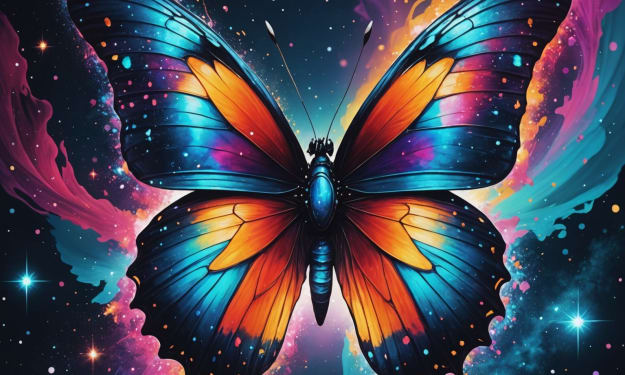"Becoming Aeliana: The Cost of Genetic Perfection"
"Human Genetic Modification has Gone too far, and the Biggest Trend for Teenagers is to BECOME their Favorite Fictional Character"

In the year 2054, the world had undergone profound changes, not least of which was the advent of human genetic modification. Once a taboo, genetic editing had evolved from a medical marvel to a fashion statement, especially among teenagers.
The trend began innocuously enough. A company named BioMorph launched a service that allowed mild genetic enhancements: changing eye color, adjusting height, or perfecting facial symmetry. The service became wildly popular among the youth, who viewed it as the ultimate form of self-expression. It wasn't long before the possibilities expanded.
Then came the breakthrough – the ability to alter one's entire physique and even some cognitive traits to mirror those of fictional characters. It was no longer about having blue hair like an anime character or a chiseled jaw like a superhero; teenagers could now become their heroes, literally.
Elena Martin, a fifteen-year-old high school sophomore, was one of the many who succumbed to the allure. She had always admired the character of Aeliana Stormrider, a warrior princess from the popular fantasy series *Chronicles of Valoria*. Aeliana was strong, fearless, and beautiful – everything Elena felt she was not.
BioMorph’s transformation process was meticulous. It began with a comprehensive scan of Elena’s body, followed by genetic mapping and re-sequencing. Over the course of several weeks, Elena’s physical form began to change. Her hair grew long and silver, her eyes turned a striking shade of violet, and her muscles became more defined. Even her voice took on a melodic lilt reminiscent of Aeliana’s.
As the transformation neared completion, Elena could hardly recognize herself in the mirror. She felt powerful and confident, but an undercurrent of unease persisted. It was as if she were watching someone else move and speak through her body.
Meanwhile, schools and communities struggled to adapt to this new reality. Classrooms were filled with an array of characters: students who had become superheroes, wizards, and even historical figures. The diversity was both dazzling and disconcerting. Teachers found it challenging to manage a room where Sherlock Holmes debated scientific principles with Wonder Woman, and Hermione Granger argued about ethics with Captain America.
The trend also had darker consequences. Bullying took on a new form as students were ostracized not for their natural traits but for their chosen transformations. Those who couldn’t afford the expensive procedures were often left feeling inadequate and excluded. Moreover, the rush to embody fictional characters led to a rise in identity crises.
Elena’s best friend, Jake, had opted to remain unchanged. He watched with growing concern as Elena immersed herself in her new identity. The rift between them widened, as Elena became more enmeshed in her Aeliana persona, drifting away from the girl Jake had known.
One evening, as Elena trained in swordsmanship – a skill Aeliana excelled in – Jake confronted her. “Elena, this isn’t you. You’re not Aeliana. You’re Elena Martin, my best friend. What happened to the girl who loved painting and reading mysteries?”
Elena paused, the sword heavy in her hand. A tear rolled down her cheek. “I don’t know who I am anymore, Jake. I wanted to be strong and fearless like Aeliana, but I feel lost.”
Jake stepped closer, placing a comforting hand on her shoulder. “You don’t need to be anyone else to be strong.
The words resonated with Elena. The journey to become Aeliana had been one of self-discovery, but it also highlighted the importance of accepting her true self. With Jake’s support, she decided to reverse the modifications, embracing her identity as Elena Martin once more.
The trend of becoming fictional characters began to wane as more stories like Elena’s emerged. Society slowly started to value individuality and authenticity over artificial perfection.
About the Creator
Isra
Versatile writer skilled in both tale & stories. Captivate readers with engaging content & immersive narratives. Passionate about informing, inspiring, & entertaining through words.






Comments
There are no comments for this story
Be the first to respond and start the conversation.